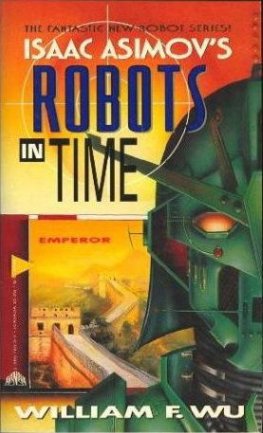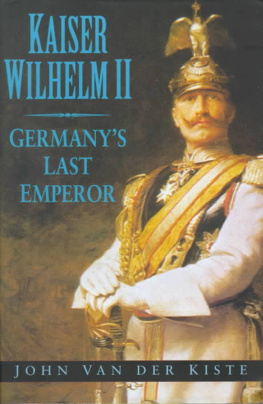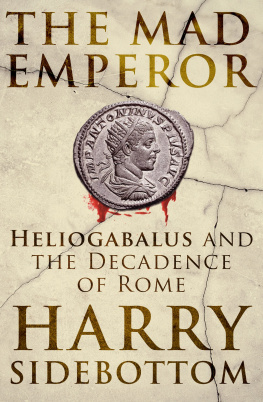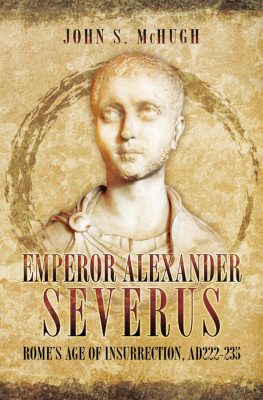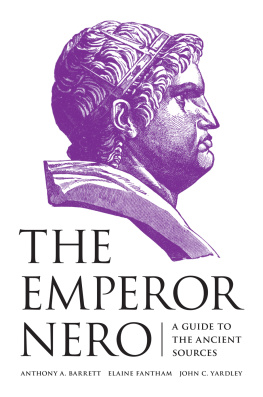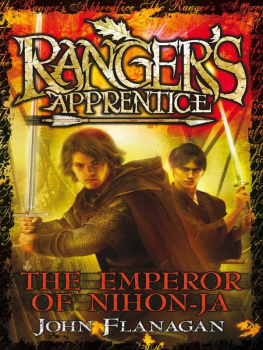INTRODUCTION
THE EMPEROR WHO IS studied in this volume has commonly been treated as if his reign had no significance, unless it were to show to what deep places the Roman Empire had sunk when such a monster of lubricity could wield the supreme power. If the chronicle of his naughty life has been exploited to illustrate the legend that the pagan society of the Empire was desperately wicked and infamously corrupt, he has not been taken seriously as a ruler. Yet Elagabalus appeared under too ominous a constellation to justify us in dismissing his brief attempt to govern the world as unworthy of more than a superficial description and a facile condemnation. His reign lasted less than four years; but those years fell in a period which was critical for the future of European civilisation, and he was brought up in a circle intensely alive to the religious problems which were then moving the souls of men. Mr. Hay has broken new ground, and he has done history a service, in making Elagabalus the subject of a serious and systematic study.
The third century, so obscurely lit by poor and meagre records, saw the Empire of Rome shaken to its foundations. There was a manifest decline in its strength and efficiency, marked by the insolent domination of the common soldier, and luridly illustrated by the statistical facts that from Septimius Severus to Diocletian the average reign of an Emperor was about three years and that there were only two or three sovereigns who were not the victims of a mutiny or a conspiracy. As one of the efficacious causes of this decline has often been suggested (most recently by M. Bouch-Leclercq) the detachment of mens interest from the public weal by the attraction and influence of individualistic oriental religions, which did not aim at securing the stability of the state, like the old religions of Rome and Greece, but undertook to save the individual and ensure his happiness in a life beyond the tomb. It is undoubtedly true that in this period religious currents were stirring society to its depths, and several rival worships were engaged in a competition of which the issue was decided in the following century. And if the state was really weakened by a cleavage which had become sensible between the private spiritual interests of the individual citizen and the public interests of society, if its cohesion was endangered by the tendency to place the former interests above the latter, we can understand the statesmanship of Constantine the Great, who, by closely connecting the state with one of those individualistic religions, conciliated and identified the two interests. I do not suggest that Constantine formulated the problem in the general terms in which we may formulate it now; he was pushed to his far-reaching decision by a variety of particular social facts, which involved the general problem, while they forced upon him a particular solution. But the problem which he solved had long been there, and a hundred years before Constantine established Christianity, another Emperor had attempted to solve it. That Emperor was Elagabalus.
The religious currents of the age of the Severi did not escape the notice, or fail to engage the interest, of the Court. Julia Domna, Julia Mamaea, Alexander Severus, were all under the influence of the spirit of the time. These were the days in which Julia Domna and Philostratus discovered for the world a new saviour in the person of Apollonius of Tyana. But the religious zeal of Elagabalus was more passionate than the intellectual interest of any of his house. He conceived a universal religion for the Empire, and his abortive attempt to establish it is examined by Mr. Hay with a full sense of its significance and an unprejudiced desire to understand it.
With all his unashamed enthusiasm, Elagabalus was not the man to establish a religion; he had not the qualities of a Constantine or yet of a Julian ; and his enterprise would perhaps have met with little success even if his authority had not been annulled by his idiosyncrasies. The Invincible Sun, if he was to be worshipped as a sun of righteousness, was not happily recommended by the acts of his Invincible Priest. I have said idiosyncrasies; should I not have said infamies? But it is unprofitable as well as unscientific simply to brand Elagabalus as an abominable wretch. His life is a document in which there is something demanding to be comprehended. If all men and women are really bisexual, this Syrian boy was of that abnormal type in which the recessive is inordinately strong at the expense of the dominant sex; he was a remarkable example of psychopathia sexualis; but in his age there were no Krafft-Ebings to submit his case to scientific observation. From this point of view, which Mr. Hay has taken, Elagabalus becomes an intelligible morbid human being. And the young man, though so highly abnormal and spoiled by the possession of supreme power before he had reached maturity, was far from being repulsive. A salient feature of his character was good nature ; he appears to have wished to make everyone happy. His pleasures were not stained by the cruelties of Nero. It amused him to shock people, but he was always good-humoured. He is said to have genially inquired of some grave and decorous old gentlemen who were his guests at a vintage festival, whether they were inclined for the pleasures of Venus. The anecdote, if not true to fact, seems to be characteristic. It is told in the chronique scandaleuse of Lampridius, one of the writers of that Augustan History round which a forest of critical literature has grown up in recent times. The outcome of all the criticism is generally to the discredit of these authors, and Mr. Hay has the merit of having strictly applied this unfavourable result to the Life of Elagabalus.
But though the religious enterprise of this eccentric Emperor was doomed to fail, it was not by any means the wild project of a madman, which those who judge post eventumafter the triumph of Christianityor who, like Domaszewski, see in it merely eine Vergttlichung der Unzuckt, are apt to take for granted that it was. In those days, it was not in the least certain, as yet, that Christianity would be chosen and its rivals left; this religion was not, as its apologists would have us believe, the only light in a dark world. To a disinterested mind it would appear that Mithra or Isis might have become the divinity of western civilisation. They were certainly well in the running. We may guess what circumstances aided the worship of Christ to rise above competing cults, but for inquirers, like Mr. Hay and myself, who hold no brief, and do not accept the easy axiom that what happens is best, it is unproven that Christianity was decidedly the best alternative. Perhaps it was. Yet we may suspect that, if the religion which was founded by Paul of Tarsus had, by the dispensation of Providence, disappeared, giving place to one of those homogeneous oriental faiths which are now dead, we should be to-day very much where we are. However this may be, it seems that in the third century the Christians were far from commending their doctrine to the rest of the world by any signal moral superiority in their own conduct. The bad opinion which pagans held of their morals in the time of Tertullian cannot be explained as a mere wilful prejudice, and Tertullians reply that the charge is only true of some but not of all nor even of the greater number



